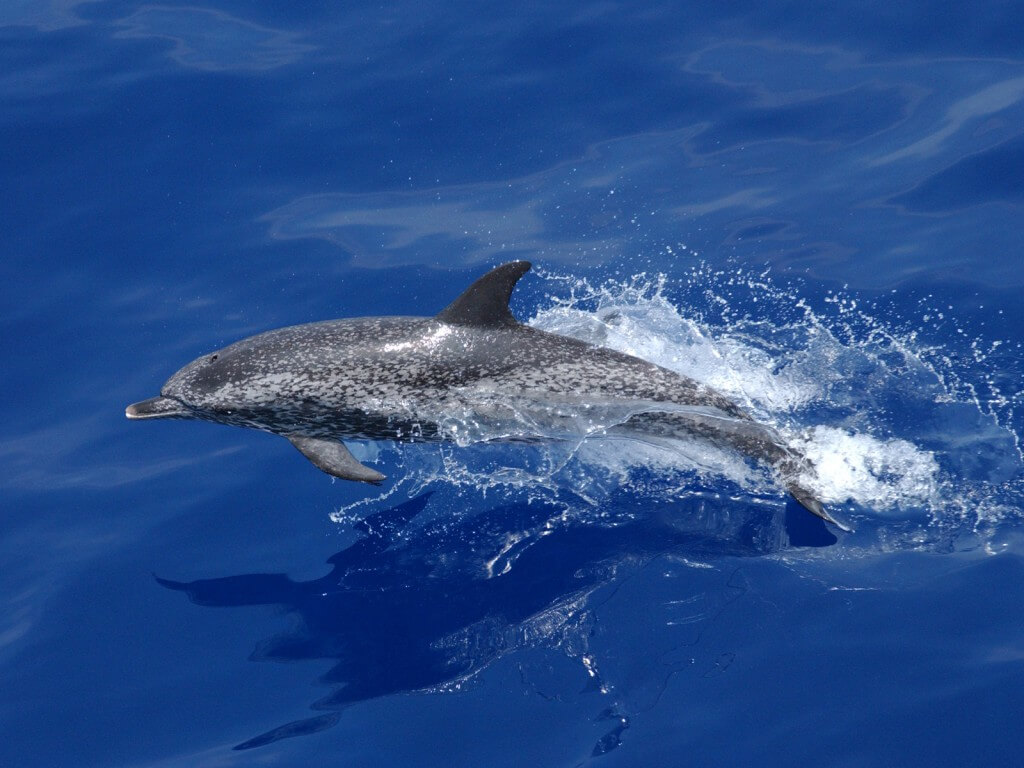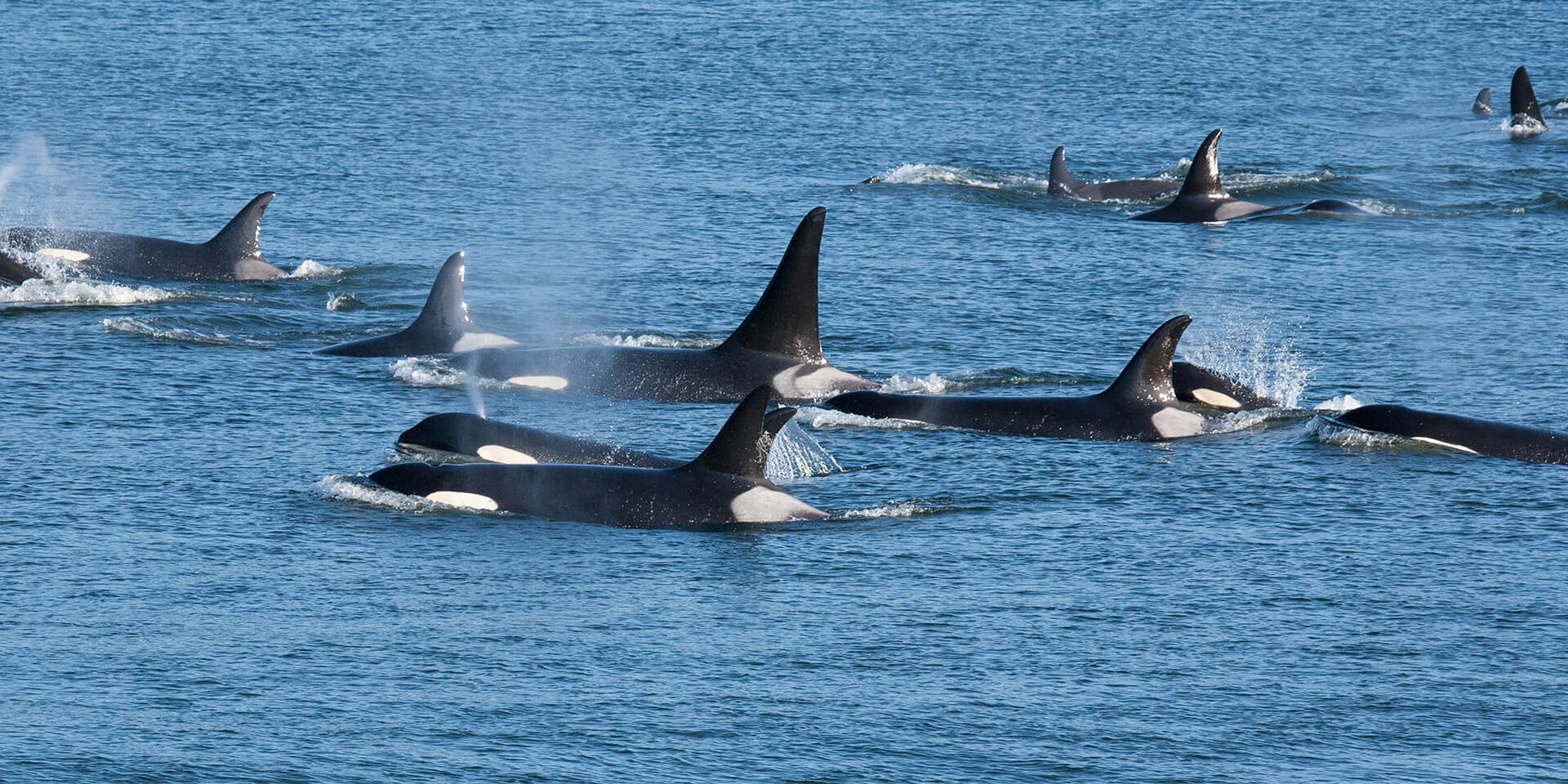Gulf of Mexico Marine Mammal Research and Monitoring Meeting

Atlantic spotted dolphin. Photo obtained under NOAA research permit #779-1633.
The Gulf of Mexico Marine Mammal Research and Monitoring Meeting was held April 7-8, 2015 at the Astor Crowne Plaza in New Orleans, Louisiana.
The objectives of the meeting were to:
- Provide an overview of marine mammal stocks and human activities.
- Review marine mammal research and monitoring programs.
- Identify high priority, overarching marine mammal data needs for the next 5-15 years.
- Identify potential funding sources/opportunities for marine mammal research and monitoring.
- Discuss options for collaborations to facilitate long-term research planning, information sharing, and capacity building.
One hundred people attended the meeting, with presentations and posters summarizing recent and ongoing projects in the Gulf. Meeting participants also discussed existing and emerging funding opportunities, some of which could be used to expand research, monitoring, and analytical capabilities to address priority information needs for marine mammals in the Gulf.
Some of the more general observations made at the meeting include the following:
- The economies of states bordering the Gulf contribute significantly to the nation’s gross domestic product, but those economies depend to a considerable degree on a vibrant, healthy marine environment with abundant living resources.
- Marine mammals are an important component of the Gulf ecosystem.
- Research and monitoring of marine mammals in the Gulf must address the information needs arising from various legal mandates, including the Marine Mammal Protection Act, Endangered Species Act, and National Environmental Policy Act.
- Better information on marine mammal abundance, distribution, habitat use, and behavior is necessary if we are to mitigate the potential impacts of human activities in the Gulf, including those associated with oil and gas exploration and development, commercial and recreational fishing, shipping, military operations, tourism, and pollution.
- Standardized methods of collecting and archiving data, training in those methods, and improved access to data are needed to support efforts aimed at assessing the individual and cumulative impacts of human activities on marine mammals in the Gulf.
- Marine mammal models that account for environmental drivers and stressors at the individual, population, and ecosystem level are needed.
- Restoration projects that may affect marine mammals, their habitat, and prey should include a monitoring component to evaluate the effects of restoration activities on marine mammals.
- Several funding opportunities exist (or are in the planning stages) that could be used to expand marine mammal restoration, research, monitoring, and analytical capabilities in the Gulf, but each has specific focus areas and constraints.
- Recent trends in funding and publishing research require that data are made publicly available in a timely manner after the completion of the project and that data are discoverable in an easily accessible repository. This has not been a common practice for most marine mammal data and will need to be addressed.
- A coordinated and collaborative approach to developing a Gulf-wide action plan would help ensure that priority restoration, research, monitoring, and assessment needs for marine mammals are identified, and that potential funds and research capacity are leveraged for maximum benefit.
- The information presented and ideas expressed at the meeting and reflected in this report are intended to help build a strong foundation for expanded marine mammal research and monitoring in the Gulf of Mexico, and to better conserve and protect marine mammals that are a part of this complex, diverse, and changing environment.
In the coming year, the Commission will be working with the National Marine Fisheries Service and other federal and state partners, scientists, and stakeholders in the Gulf to refine research and monitoring priorities as part of a larger action plan for the Gulf.
View the meeting summary and presentations.
For more information about the meeting, please contact Vicki Cornish at vcornish@mmc.gov.
Meeting Organizers
- Vicki Cornish, Chair, Marine Mammal Commission (Sponsor)
- Jason Recher and Sarah Gretchen, Audubon Nature Institute
- Tre Glenn, Bureau of Ocean Energy Management
- Deborah Epperson, Bureau of Safety and Environmental Enforcement
- Randall Wells, Chicago Zoological Society
- Kathryn Mengerink and Teresa Chan, Environmental Law Institute – Ocean Program (Sponsor)
- Stephanie Watson, Gulf of Mexico Coastal Ocean Observing System (Sponsor)
- Randall Reeves and Sam Simmons, Marine Mammal Commission
- Laura Engleby and Keith Mullin, NOAA Fisheries
- Elizabeth Fetherston, Ocean Conservancy
- Pamela Plotkin, SeaGrant Texas, Texas A&M University (Sponsor)
- Graham Worthy, University of Central Florida
- Paula Moreno, University of Southern Mississippi – Gulf Coast Research Laboratory
